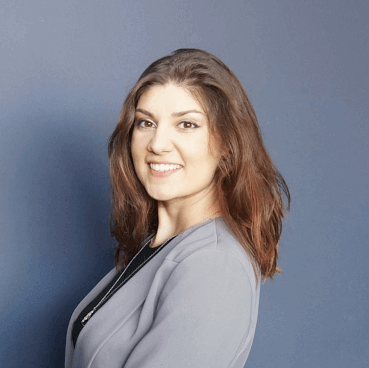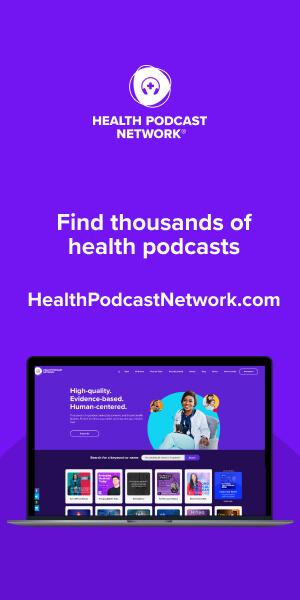During this year’s HLTH conference, Demi Radeva, one of Digital Health Today’s global ambassadors, had a one-on-one with Andrew Parker, Founder and CEO of Papa.
Papa helps connect members and their families to real people for help with companionship, everyday tasks, transportation, and more. It is virtal human connection, right to the front door.
Andrew shares his perspectives and experiences for securing reimbursement and investment in what are often labeled “squishy“ innovations; these include innovations in spaces such as behavioral, wellness, health equity, and social determinants of health.
Read on for practical workarounds, tips and tricks.
Q1: Discuss the power of digital health technology reimbursement. How has it helped or hindered your progress?
Andrew: There was recognition that people who were lonely and isolated needed support, but not in the context of the traditional home services or nursing services. Papa started as a companionship platform for older people and there was no reimbursement for our services. In 2018 and 2019, big reimbursement changes took place as health equity, social determinants of health became of critical importance in the world and as the pandemic unfolded. That’s the thing I’m most optimistic about in healthcare is the move towards helping the whole person. Today, 100% of our revenue comes from our reimbursable model. Reimbursement is the most critical component of our success.
Q2: What strategies, tools, and mental models have helped your company secure reimbursement?
Andrew: It’s incredibly complex. The first rule is to make sure you are solving a need of the health plan. Otherwise, you are just a widget or a point solution. Second, prove out your outcomes. At Papa, we’ve been able to prove our value, outcomes, reduction in cost, improvement in
The Power of Digital Health Technology Reimbursement Star ratings, membership retention and reducing loneliness. Make sure to get credit for these types of metrics. Third, make sure that you are able to work within the world of traditional health plan infrastructure while creating a new kind of care that is innovative.
Understanding the value and impact your solution is critical to being able to secure reimbursement from health plans or employers. Otherwise, you are in one day and out the next. We work with over 100 health plans and have a few million members and we are just getting started. That has resulted from our ability to understand what gets members healthier and happier, and also understand what moves the needle on the health plan side.
Papa is purposefully built in a way that allows us to do a lot of interesting things because we have tech-enabled human beings that are friendly. We have the human beings for things that tech can’t do, like telling a joke and lifting someone’s spirits and mood. We use data and technology to personalize the experience and scale the positive outcomes.
Q3: What has hindered your ability to gain reimbursement?
Andrew: A hack is looking at existing codes and existing reimbursement methodologies and seeing how to use them as opportunities. Also, find innovative health plans and partner with them. Find a champion that wants to help you understand what the way to reimbursement is. Keep in mind that because it’s not reimbursed in the traditional sense, it doesn’t mean that there isn’t a way. For example, Medicare Advantage is a really good place to start because they are more flexible than ever before.
Last, you could correlate impact. What that means is, to prove the efficacy of our intervention, we use evidence from traditional settings and extrapolate that information or try your own experiments. For example, there is a statistic that loneliness is equivalent to smoking 15 cigarettes a day. How did they reach that conclusion? They looked at the profile of people who were lonely and compared it to a world of metrics and found that it’s similar to profiles of smokers. From a marketing perspective, this can be a very powerful technique.
Q4: What can payers do differently?
Andrew: I do think that payers recognize that traditionally “soft” innovations aren’t so “soft”. And I would go as far as saying that these types of innovation are much harder than as they were once thought of. I think this shift has already happened is continuing to unfold. Payers are more willing to take a leap of faith on certain interventions.
My biggest piece of feedback is that the innovation arm of payers must have a mandate that allows them the flexibility and almost decouples them from the health plan. For example, the budget for innovation doesn’t go through the traditional red tape. If they continue to do this, they’ll never get the innovation that they want [i.e., disruptive innovation] and they’ll miss out on the “soft”, and what is in my opinion, more impactful innovation.
At the same time, I would challenge startups to show that what they are working on is not soft.
Lightning Round
- What is a saying, quote or phrase that motivates you?
Just Do It! - What advice do you have for others working to innovate and healthcare?
Spend a lot of time understanding the problem. Look for big problems. Look at your own personal experiences. - What book do you recommend to our listeners?
The Lean Startup: How Today’s Entrepreneurs Use Continuous Innovation to Create Radically Successful Businesses by Eric Ries Meditations by Marcus Aurelius - What is a technology that makes your life better and easier and keeps you healthy?
The Power of Digital Health Technology Reimbursement, iPhone and more specifically, the Notes app!
- What is a space in healthcare that isn’t getting much attention, but should?
Medicare Advantage. The aging space is becoming sexy.





